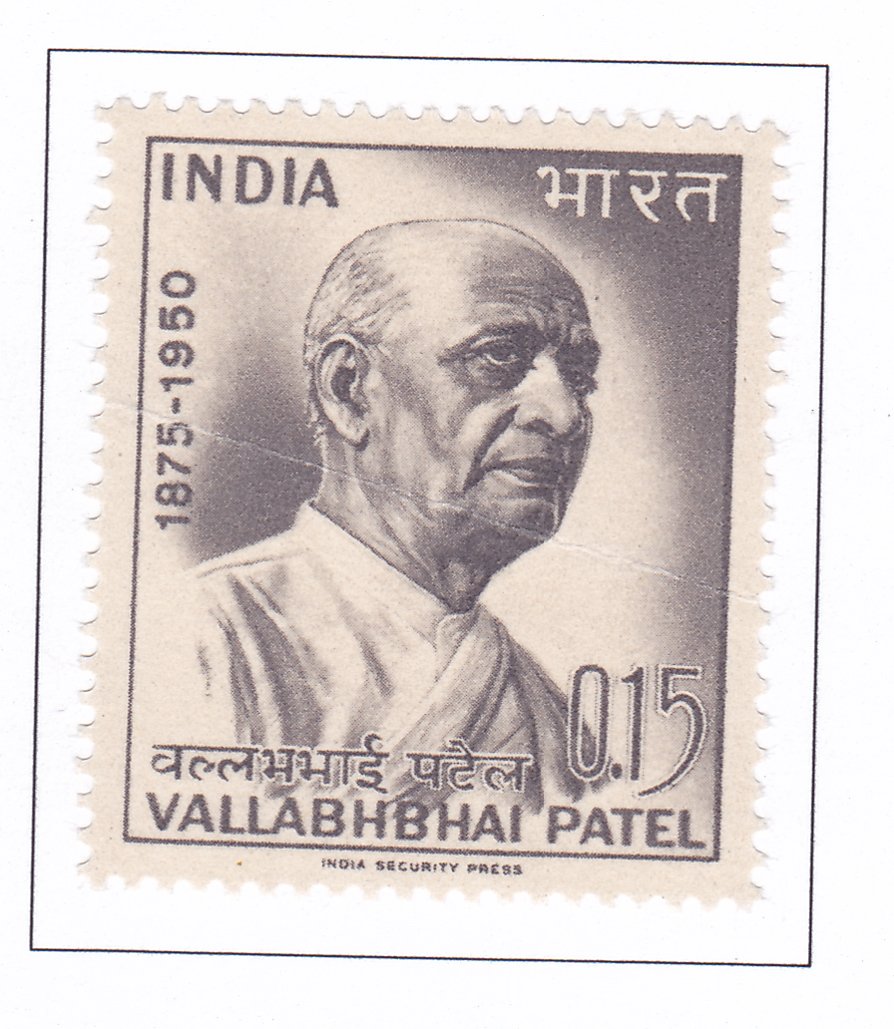Vallabhbhai Patel 1875-1950

Technical Data
| Date of Issue | October 31, 1965 |
|---|---|
| Denomination | INR 0.15 |
| Quantity | 2,000,000 |
| Perforation | comb 14 x 13½ |
| Printer | Security Printing Press, Nashik |
| Watermark | No Watermark |
| Colors | Blackish brown |
| Catalog Codes |
Michel IN 402 Stamp Number IN 425 Yvert et Tellier IN 196 Stanley Gibbons IN 523 |
| Themes | Anniversaries and Jubilees | Famous people | Headgear | Heads of State | Politicians | Statesmen |
The Indian Posts and Telegraphs Department proudly announces the issuance of a special commemorative stamp on October 31, 1965, in honor of the ninetieth anniversary of Sardar Vallabhbhai Patel.
Born on October 31, 1875, in Nadiad, Gujarat, Sardar Vallabhbhai Patel hailed from a humble peasant family. He was the fourth of six children and demonstrated a strong work ethic from a young age. Despite attending the local school, he also learned agricultural skills, showing versatility and determination. Like his brother Vithalbhai, he pursued a career in law and became a successful district pleader. He traveled to England to qualify as a barrister, but tragedy struck when he lost his wife at the age of 33, leaving behind a daughter and a son.
Upon his return to India, Patel established a thriving legal practice in Ahmedabad, specializing in criminal law. His path intersected with Mahatma Gandhi in 1917 during the Godhra session of the Gujarat Sabha, where Patel served as secretary. This meeting marked the beginning of a lifelong association. Patel’s dedication to public service led him to abandon his legal career and become actively involved in politics. He played a pivotal role in strengthening the Gujarat Provincial Congress Committee and was elected President of the Ahmedabad Municipality in 1924. His leadership qualities and commitment to the Indian National Congress earned him widespread respect, culminating in his election as President of the Congress at the Karachi Session in 1931. Despite facing numerous incarcerations, Patel remained undeterred in his pursuit of Indian independence. His health may have faltered, but his determination remained unshakeable. Upon India’s independence, Patel assumed the role of Home Minister, where he tackled the nation’s challenges with unparalleled energy and dedication until his passing on December 15, 1950.
Sardar Vallabhbhai Patel’s vision for a free, strong, and united India was unwavering. He drew inspiration from Mahatma Gandhi and was renowned for his organizational skills and ability to inspire confidence in others. With his iron will and statesman-like clarity of thought, Patel played a pivotal role in shaping the destiny of modern India. He was a man of action, guided by his principles and a deep love for his country.
Patel’s crowning achievement was the integration of Indian states into the Union, a task he approached with determination and foresight. For him, integration meant not only the accession of princely states but also the empowerment of the people. His efforts resulted in the unification of India like never before, leaving an indelible mark on history.
Sardar Vallabhbhai Patel’s dedication to his nation remained unwavering until the end. Despite his stern demeanor and resolute decisions, he was also known for his gentleness and compassion. His life epitomized the qualities of a true leader, earning him the admiration and respect of generations to come.
